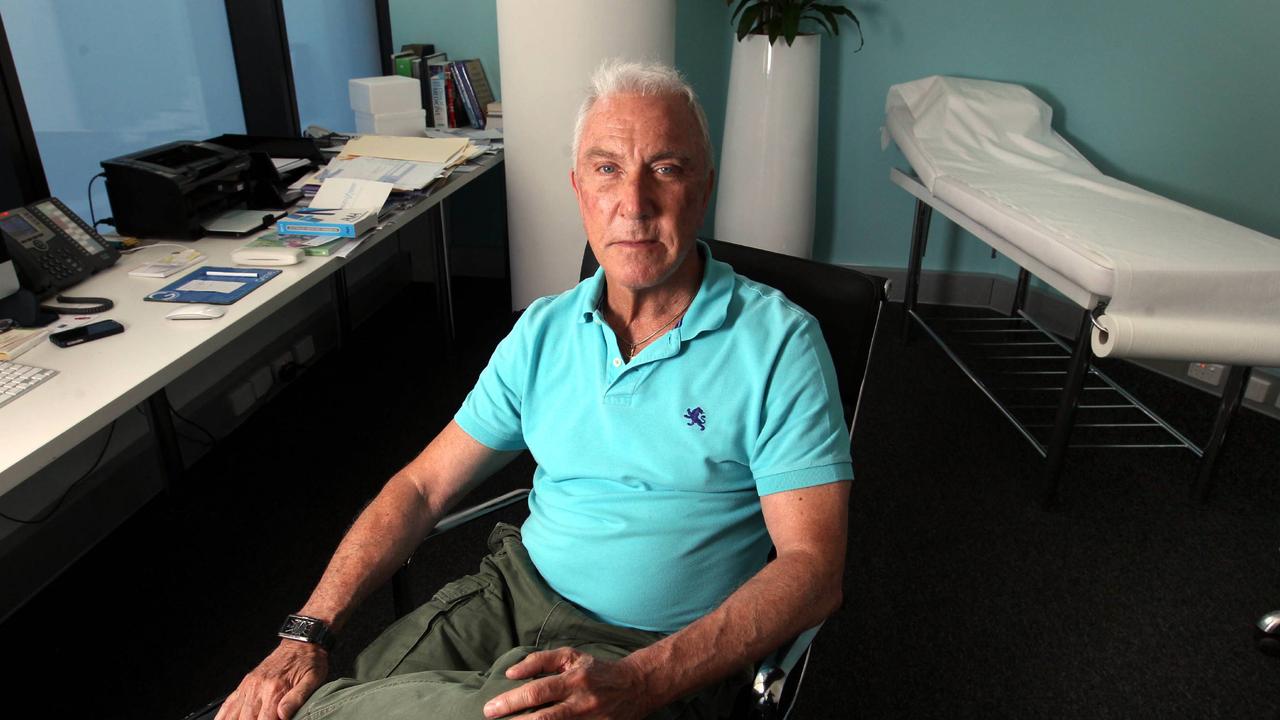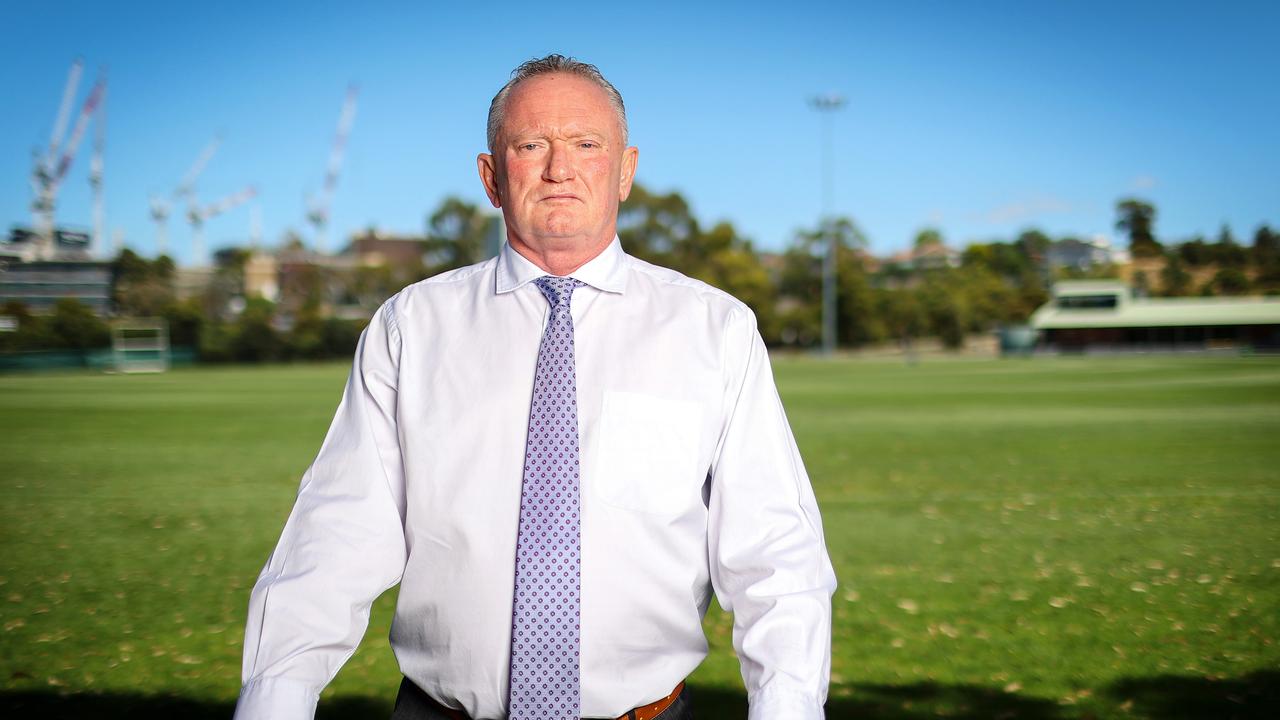Essendon drugs saga: Dr Robin Willcourt says he was conned by Stephen Dank
A doctor who analysed Essendon’s blood samples says he was conned by Stephen Dank during the drugs saga, also revealing some suspicions of the effects the injections had on players.
AFL
Don't miss out on the headlines from AFL. Followed categories will be added to My News.
The anti-ageing doctor who analysed Essendon’s blood samples during the drugs saga says he was conned by Stephen Dank into believing the scientific study had the backing of the Bombers and club doctor Bruce Reid.
Dr Robin Willcourt also said he suspected players were injected with a drug that gives you “rip-roaring erections” and “turns you brown without having to go in the sun”.
He claimed: “(Dank) didn’t tell me this, but we talked about it in general because the players were making jokes about it, that they did get some injections, which I think was Melanotan II.
“Melanotan II turns you brown without having to go to the sun and it also gives you rip-roaring erections.”

Asked why players would be given Melanotan II, Willcourt said: “I don’t know, I have no idea”.
Willcourt said Dank never discussed banned drugs like testosterone and growth hormone.
“Most of (what players were given) was vitamin supplementation,” Willcourt said on the You Can Not Be Serious Podcast.
“Things like colostrum, which is the precursor of milk and it’s believed to have some beneficial effects. All of those things are completely legal.
“Colostrum contains growth hormone-like peptides – but they’re not illegal.
“We went through a list of things that would be helpful in fixing inflammation and healing, and those peptides were things like Thymosin Beta-4, AOD and so on.
“Stephen swears he never did (give them Thymosin Beta-4 once it was banned). He told me very directly, and I have no reason at all to disbelieve him.
“I probably am (the only person who believes him), but I was with him through that.”
Willcourt was brought in because Dank wanted to study players’ physiology using blood tests over a two-year period.
He said Dank feared fitness boss Dean Robinson’s training program was too rigorous and hoped the data would identify when players were overstressed.
With Dr Reid refusing to endorse the program, Dank asked Willcott to authorise the blood tests.
“I had no problem with that. I saw no irregularity whatsoever in signing these blood requests for Steve to use in his scientific program, which I believed at that time had been completely approved by the Essendon Football Club, and Bruce Reid,” he said.
“I wrote a letter to Bruce Reid saying that Stephen Dank had contacted me, that he had asked me to look at the players’ blood work and would he mind if I made some suggestions?”
“I never heard back from him. (But) Stephen said, ‘I’ve got to have somebody give me some guidance on this on what you see as potential pitfalls if there’s abnormal blood work’.

“I took this, as we do in medicine, as like a kerbside consult. I’m interested myself as I’m really curious as to what an intense, vigorous training program might do to the physiology of the players.
“Because one thing is for certain, when they’re overstressed their hormone levels like testosterone and growth hormone will fall, and that puts them at risk of not healing properly if they get injured.
“So they will be put into a prolonged healing program rather than a short healing program. We both recognised that there’s not a darn thing we could do about it by fixing the hormone issues, but we could at least say the training program needs to be altered so this has not happened.”
Dank transported the blood samples to Willcourt’s office.
He said some showed “very low levels of testosterone” and incidental findings, like liver enzymes being off.
Willcourt’s wrote notes on the margins of the blood work, such as: “Wow, this guy‘s testosterone is “really low!!” and they were returned to Essendon.
Willcourt said Dank had promised a contract to officially oversee the study, but that never arrived.
The Australian Health Practitioner Regulation Agency (AHPRA) and VCAT then came after Willcourt, who was fined $7000.
“They claimed that I was the doctor responsible for overseeing them and that they were my patients. That’s just not true. I never saw any of them physically,” he said.
Willcourt said his relationship with Dank “got incredibly fractured”. He said Dank never came to his defence.
Originally published as Essendon drugs saga: Dr Robin Willcourt says he was conned by Stephen Dank






